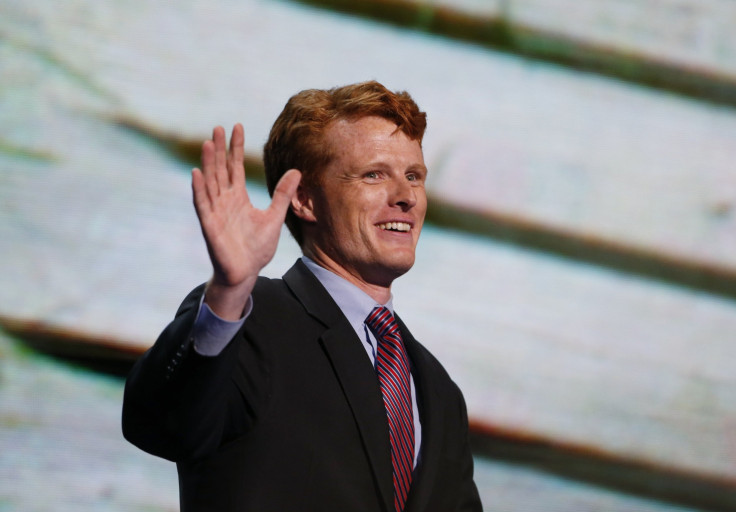Joe Kennedy Facing Tough Odds In Senate Battle Against Ed Markey

In Massachusetts' much-watched Democratic Senate primary, Rep. Joe Kennedy III trails by a sizable margin to incumbent Ed Markey. Kennedy, a member of the famed New England political family, appeared to be the favorite ahead of the Sept. 1 election but Markey’s history of progressive stances may prove to be a serious catalyst for the first-term senator.
A poll released Wednesday by the University of Massachusetts Amherst shows Markey with a 15-point lead over Kennedy, 51% to 36%. In May, an Emerson survey showed Kennedy ahead by 16 points, 58% to 42%.
Markey, 74, is one of the authors of the Green New Deal, along with Rep. Alexandria Ocasio-Cortez, D-N.Y. -- a young, progressive congresswoman who has endorsed him.
"When it comes to progressive leadership, it's not your age that counts, it's the age of your ideas, and Ed Markey is the leader that we need,” Ocasio-Cortez said in a video ad.
Markey, meanwhile, has an ad narrated by AOC ("When it comes to progressive leadership, it's not your age that counts, it's the age of your ideas, and Ed Markey is the leader that we need.") #masen #mapoli pic.twitter.com/JRKGIGnmMT
— Greg Giroux (@greggiroux) August 9, 2020
Markey has also received support from prominent Massachusetts progressives, such as Sen. Elizabeth Warren, D-Mass.
Markey filled the seat of John Kerry after a 2013 special election. He was a U.S. Representative for the state’s 7th congressional district from 1976 to 2013.
"What Markey hadn't done in the past was flex his muscles, flex his policy muscles," Suffolk University pollster David Paleologos told Politico. "Now he's doing that and I think Kennedy is realizing policy runs deep in Massachusetts. Personality and persona are important too, but in Massachusetts policy runs very deep.”
The lead on Kennedy may mean the family's political dynasty could be fading.
Kennedy, 39, is the son of former Rep. Joseph P. Kennedy II. His grandfather, former New York Senator and U.S. Attorney General Robert F. Kennedy, was the brother of former President John F. Kennedy.
The challenger has argued that the Senate needs more young politicians like himself. He has also claimed Markey has been “absent” during the ongoing COVID-19 pandemic and hit the incumbent on votes in favor of the Iraq War and the 1994 crime bill.
Joe Kennedy III has served in the House since 2013. In 2018, he gave the Democratic response to President Trump’s State of the Union address.
© Copyright IBTimes 2025. All rights reserved.





















